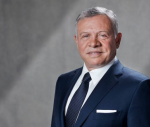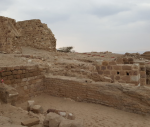You are here
Russia’s mediation in Syria may have a chance
Dec 09,2014 - Last updated at Dec 09,2014
The endgame in Syria may be changing, more than three years after the eruption of a popular uprising against the regime of President Bashar Assad. Peaceful protests quickly turned into an armed confrontation that claimed the lives of more than 200,000 Syrians and left 3 million homeless so far. The Syrian conflict has challenged the resolve of the international community, which failed to come up with a solution that is acceptable to the various parties who have a stake in the future of Syria. It also exposed deep differences between the West and Russia, a major ally of the Damascus regime. Washington and its European, Turkish and Arab allies found themselves on the opposite side of a Russian and Iranian front that was committed to backing President Assad and keeping him in power.
US President Barack Obama was criticised for failing to come up with a workable strategy on Syria. While he initially called for the removal of Assad as the only path to stabilising Syria, he has balked at promises to arm the Syrian opposition or enforce humanitarian corridors and no-fly zones in the north and south of the country. Certainly Washington and Ankara no longer share a common stand on the fate of Assad as the former commits to a political solution as the only viable option.
With Washington and Moscow at odds over the crisis in Ukraine, it is unlikely that the two countries are exchanging views on the future of the Syrian conflict. But one must remember that Russia’s influence over Damascus was instrumental in convincing Assad to dismantle his chemical weapons arsenal. On the other hand, since the failure of the Geneva II conference earlier this year and the ensuing resignation of the UN/Arab League envoy Lakhdar Brahimi, efforts to bring the Syrian parties back to the negotiation table have dissipated.
Since then there has been a major turn of events on the ground. The rise of the Islamic State, also known as ISIS or ISIL, has become a game changer. Reaction to the sudden expansion of radical jihadist groups in Syria and Iraq was slow and perplexed. Not until Islamic State militants took over the city of Mosul in northern Iraq earlier this year and persecuted religious and ethnic minorities did Washington realise the true extent of the new threat. At one point Islamic State fighters were in control of a large area extending from northern Iraq to eastern Syria and by mid-year they were advancing towards Baghdad.
Today a 60-nation coalition, led by Washington, is bombing Islamic State positions in Iraq and Syria. Focus on Assad’s atrocities and continuing aerial campaign to strike rebel-held cities and towns has shifted. The priority now is to fight the jihadists in what promises to be a long and costly war.
With changing strategic and political priorities Moscow has now chosen to intervene and try to revive the chances for a peaceful settlement of the Syrian crisis. Ironically the onslaught of the Islamic State in Syria has put the Free Syrian Army (FSA) and the regime in the same trench. The jihadists are waging war against both and as the US-led coalition realises that air strikes alone will not be enough to defeat them, the option of striking a truce between the regime and the rebels so that both can direct their firepower against Islamic State militants seems like a viable option.
Moscow has initiated talks with representatives of the Syrian National Coalition (SNC), the main opposition group in exile and this week it dispatched Deputy Foreign Minister Mikhail Bogdanov to the region. He has called for an unconditional Syrian-Syrian dialogue that does not exclude anyone and which recognises the principles of Geneva I as an acceptable framework. Russia is the regime’s main supporter and its intervention now, in the absence of an alternative political process, is extremely important. His Majesty King Abdullah, who met Obama in Washington last week, told a US news network that Russia can play a vital role and help reach a political solution in Syria.
Syrian Foreign Minister Walid Al Mouallem was in Moscow last month as well as Moath Al Khatib, former head of SNC, and it now appears that the Russians are willing to host the proposed talks. But the opposition is divided over the issue. Hardliners continue to insist that Assad must leave for any political solution to succeed. They will quickly become outnumbered or isolated if the regime accepts the Russian offer. Moderates within the opposition will see an opportunity for a political re-engagement at a time when Western political and military support is waning. For now Russia holds the key to a possible breakthrough, amid strong signs that Obama, while still insisting that Assad has no future in Syria, may no longer demand his departure at this stage.
The priority for all today is to defeat the Islamic State and preserve Syria’s territorial integrity. If Both Damascus and the opposition accept UN envoy Staffan de Mistura’s plan to freeze fighting in Aleppo it will give Russian mediation a fresh boost. As America and its allies focus their efforts on fighting the jihadists, Russia’s initiative to forge a truce in Syria may have a working chance.
The writer is a journalist and political commentator based in Amman.













